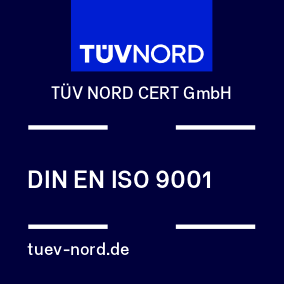Main content:
Updates
May 7, 2025: UPC publishes its case-load statistics since the start of the UPC.started. A steadily increasing work-load is observed: https://www.unified-patent-court.org/en/news/case-load-court-start-operation-june-2023-update-30-april-2025
April 4, 2025: EPA Vice-president Christoph Ernst at a meeting with patent attorneys confirms that actually more than 53.000 request for unitary effect have been filed. The simplification and cost reduction caused by the unitary patent is regarded with favor by the attorneys.
April 1, 2025: EPO publishes this year´s update of its unitary patent guidelines:https://www.epo.org/en/legal/guidelines-up/2025/index.html
March 25, 2025: EPO publishes the 2024 patent index: like in the year before the demand for the unitary patent outperforms expectations. We see more than 28.000 requests for unitary effect, 25.6% of all European patent applications.
February 14, 2025: At the same day the UPC publishes its first annual report: https://www.epo.org/en/service-support/faq/law-practice/unitary-patent/costs-unitary-patent-and-reductions-small-3
February 14, 2025: The Administrative Council in its 14th session among other things approves the employment of additional judges. This is a reaction to the faster than expected increase of UPC´s workload.
January 1 2025: the Vienna local chamber of the UPC is moved into the premises of the Austrian Patent Office
December 3, 2024: More than 25,000 unitary patents are now registered. Detailed statistics can be found at www.epo.org/en/about-us/statistics/statistics-centre .
December 3, 2024: The last hearing of the local Vienna Chamber is expected to take place at the Labor and Social Court. The Chamber is scheduled to move to the premises of the Austrian Patent Office at the beginning of 2025. The administrative support of the Chamber has already been provided by employees of the Patent Office, so the move will not only further improve this service, but also reduce costs.
September 27, 2024: the Board of Directors and the Court appoint the Committee of Experts for the Arbitration and Mediation Center (PMAC). It advises the PMAC Director on legal and administrative matters. Petra Asperger (ÖPA) was appointed on behalf of Austria. Nothing now stands in the way of the establishment of the PMAC.
September 23, 2024: Emmanuel Gouge takes his oath as a legally qualified judge in the Pasis Central Chamber. The continuous recruitment of new technical and legal judges reflects the court's growing workload, but also its success and the growing confidence in the system.
September19/20, 2024: in cooperation with the European Patent Academy, the Austrian Patent Office organizes a meeting of judges and staff of the Unified Patent Court in Vienna. President Stefan Harasek and SC Christian Auinger welcome 170 participants, including the Registrar Alexander Ramsey, the President of the Court of First Instance Florence Butin and the President of the Court of Second Instance Klaus Grabinsky. Such meetings are to take place regularly for training and quality assurance purposes.
Sep 9, 2024: According to the decision of the Administrative Committee, Mr. Ales Zalar will be appointed Director of the Patent Mediation and Arbitration Center (PMAC) that is yet to be established. Among other things he served in Slovenia as Minister of Justice and was President of the European Center for Dispute Resolution (ECDR). The PMAC has its headquarters in Laibach/Ljubljana (Slovenia) and Lisbon (Portugal).
Sep 1, 2024: Romania joins the unitary patent. Now there are 18 participating countries.
July 1, 2024: Johannes Mesa Pascasio takes his oath as a technically qualified judge in the presence of the chairman of the Vienna Local Chamber Walter Schober. Also present was the technically qualified judge Klaus Loibner. Austria is therefore represented in the Unified Patent Court by two technical and one legally qualified judges.
June 27, 2024: in Milano (IT) the third branch of the UPC central chamber officially open its doors.
Feb 29, 2024: UPC publishes a detailed case-located statistics https://www.unified-patent-court.org/en/news/case-load-court-update-29-february-2024
Feb 26, 2024: The UPC court of appeal rendered its first substantive decision.
Feb 22, 2024: EPO announces acceleration of opposition proceedings in case of parallel court actions. More Information
The six most important questions about the Unitary patent
- How can I get a unitary patent?
Unitary patents are granted since June 1, 2023. Apply at EPO for a ´ordinary´ European Patent, designate all countries (potentially) eligible for the Unitary Patent and file a request for unitary effect (free of charge). - How much will the unitary patent cost?
A unitary patent will cost around € 7,400 on average for the first ten years. Instead of one fee for each country in which patent protection is sought, there is only one fee for the unitary patent for all participating states. For comparison: if inventors only protect their invention in four countries it is more than 10.000 €. The unitary patent provides protection in 18 countries for an even smaller amount of money. - Is the whole EU involved in the unitary patent?
Currently 18 countries are participating: Austria, Belgium, Bulgaria, Denmark, Estonia, Finland, France, Germany, Italy, Latvia, Lithuania, Luxembourg, Malta, the Netherlands, Portugal, Romania, Slovenia and Sweden. The unitary patent applies in these countries. When fully developed, there can be up to 24 member states. - Into which languages has the unitary patent to be translated?
Like the previous European bundle patent, the unitary patent can be registered in German, English or French. During a transitional period of twelve years, all unitary patents must be translated into English or another official language of the EU. After that, you only register in one official language of the EU and no further translation is necessary. - How to get a unitary patent?
The unitary must be registered with the European Patent Office and will then be granted by the European Patent Office. - What support do companies and researchers who want to register a unitary patent get from the Austrian Patent Office?
The best way to get protection starts with a professional search at the Austrian Patent Office. You get a professional assessment of wheter your invention is new and patentable. The Patent Office advises and accompanies SMEs, startups and researchers in order to provide them with a safe path to internationalization.
More questions?
The advantages
The unitary patent is intended to bring advantages to inventors and companies: You can protect your innovations with a single patent in several countries at the same time and save a lot of paper, time and money. Above all, the otherwise very time-consuming translation into the national languages is no longer necessary. The Unitary Patent can be applied for in German, English or French. The effort of translating in the conventional process should not be underestimated. And instead of one fee per country, only one fee is charged for all participating states. The annual fee is comparable to a four-country fee and currently offers protection for 18 countries.
Note! The unitary patent is not a walk in the park.
Despite all the advantages and the simple registration, there are some things to consider. If the patent is not granted, for example, the entire procedural fees are lost, just as with the bundle patent. A risk that can be minimized in advance with a professional search by the Austrian Patent Office. Such a research is available for € 282 (online application € 262) and will be completed within a few months. Even better: With a national patent or utility model application, you also get this search and at the same time secure the priority date. Applicants should therefore go to the Austrian Patent Office first and only then apply for the unitary patent.
The new granting procedure works according to the principle "One for all, all for one". If the patent is granted, it is valid in all participating countries. But if it is successfully challenged in one of the countries, then it also loses its effect in all other countries. Depending on the technical subject matter, the challenge is heard before one of the central chambers in Paris or Munich or Milano.
The infringement of a unitary patent is also heard before local chambers. That can be in Stockholm, Milan or Vienna, to name just three examples. The Court of Appeal (second instance of the UPC) is based in Luxembourg.

